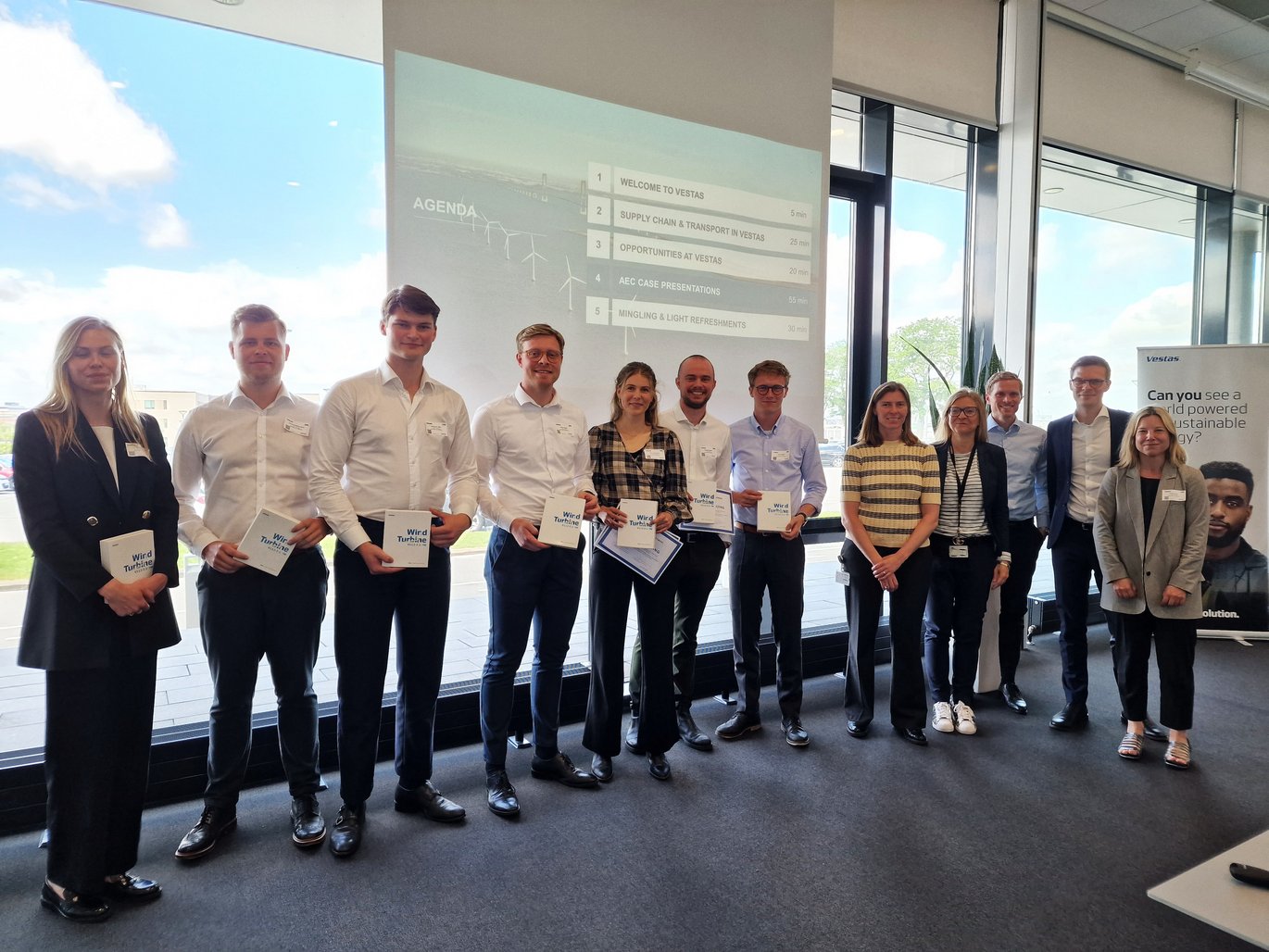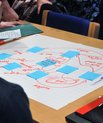Two winning teams named in Vestas case competition
Students from the Department of Economics and Business Economics at Aarhus BSS have analysed and prepared a forecast of the shipping industry in the near future. Vestas is pleased to get a fresh perspective on their logistical challenges, and the students are proud of their collaboration with the prestigious wind turbine company.

When transporting giant blades and towers for wind turbines to markets around the world, Vestas is dependent on cargo ships to accommodate the increased demand for climate-friendly energy. But the shipping industry is experiencing logistical challenges and shortages, only worsened by the financial crisis, coronavirus pandemic and war in Ukraine.
Vestas wanted a solution for how they can resist these challenges. In collaboration with the Department of Economics and Business Economics at Aarhus BSS, the company organised a case competition, in which students on the course Applied Economic Consulting on the Master’s degree programme in International Economic Consulting were tasked with analysing and forecasting the future of the shipping industry and proposing a plan for how Vestas can secure capacity by 2027.
Now, the winners of the competition have been named. Last Friday, they presented their results and recommended strategy to Vestas. The solutions were well received by senior specialist (in corporate strategy) Jacob Lihn:
“We were very impressed by the hard work and interesting methods and solutions the students came up with. It is always a good idea to get new and fresh perspectives on our challenges and to be inspired to find alternative ways of solving them. I hope we will see several of the students at Vestas in the future. Interaction with and access to the talents of the future is a fundamental part of our ability to continue the development, upscaling and industrialisation of our company,” says Jacob Lihn and continues:
"The course Applied Economic Consulting is a good example of a mutually beneficial collaboration between academia and the world of practice. The students gained access to a real-life problem from Vestas, which they had to solve based on the academic skills and methods they have acquired during their studies. I believe that such collaborations help prepare the students for their future jobs after graduation,” says Jacob Lihn.
A tremendous accomplishment by the students
"Obtaining a complex challenge from a prestigious company like Vestas was highly motivating. Having the opportunity to present and discuss our findings with highly competent and experienced Vestas employees is a reward in and of itself,” says Kristian Nordvik Thyssen about the case competition. Together with Valdemar Sloth, Rasmus Jensen and Mia Hjuleraa, he was part of one of the winning teams, MIMIC Consulting Group.
Simone Juhl Hansen from the other winning team, ReThink Consulting, agrees. Her teammates included Victor Windfeld, Alexander Daabeck and Jacob Lind.
"Working with a real-life case has been great and has provided us with the opportunity to apply some of the tools we were taught on our degree programme. Naturally, we are very proud to have won the case competition, and we are also happy to get the chance to present our solution to Vestas,” she comments on behalf of her team.
Kristian Nordvik Thyssen acknowledges the other students’ efforts during the intense period of case work:
“To win a case-competition such as this is a significant accomplishment, not only because it spans eight weeks, but also due to the calibre of the other students! It is a tremendous accomplishment to compete against extremely diligent and intelligent students – and win,” he says.
The time spent on the case has been intense and focused, but also very instructive for the students. And according to Kristian, well worth the effort.
“The best lesson from the case competition is the consulting experience: short deadlines, long hours of work, the ability to present in front of ‘clients’, learning how to deal with stress, and being placed in unfavourable circumstances. It has been great to solve a complex real-world business case, including making independent decisions regarding how to solve the case and applying statistical methods learned in previous courses. This has also helped us develop as people,” says Kristian Nordvik Thyssen.









